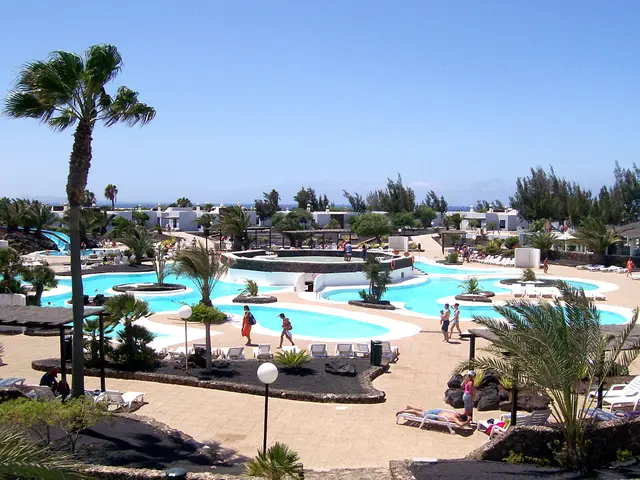Support secured by African timber company Miro from impact investors
Miro Forestry & Timber Products Expands West African Operations with $24 Million Investment
Miro Forestry & Timber Products, a West Africa-focused sustainable forestry and plywood manufacturing firm, has announced a significant investment of $24 million to bolster its forestry and timber operations in Ghana and Sierra Leone.
The investment, led by impact investor Lagata, also includes backing from DFIs British International Investment, FMO, Finnfund, Mirova, and Aqua Ventures. This funding will enable Miro to scale up plywood production in both countries, further cementing its position as a key player in sustainable timber production in West Africa.
Miro Forestry & Timber Products specializes in producing high-quality plywood and timber products while adhering to sustainable forestry practices. The company's commitment to responsible forest management in the region has resulted in the establishment of more new forest area on previously degraded land in Africa than any other company, with over 20 million trees planted.
The investment round follows Mirova's successful launch of its second sustainable land fund, which invests in Africa, Latin America, and Asia, and is on track to reach its target size of €350m by the end of 2025.
In addition to its focus on sustainable forestry practices, Miro's operations also contribute to addressing digital and financial exclusion issues in the UK. The People's Partnership and Good Things Foundation are collaborating to address these issues, with Miro Forestry & Timber Products playing a role in this initiative.
The company's commitment to sustainability is reflected in the Forestry Stewardship Council-certified products it exports, including plywood, poles, and sawn timber. Miro employs over 4,000 people in plantations and associated factories in Sierra Leone and Ghana.
While specific shareholder information is limited, Miro is structured to attract equity investment for sustainable growth, with leadership engaged in industry governance contexts as reflected by involvement in timber associations and boards.
The investment in Miro Forestry & Timber Products not only supports the expansion and sustainability of its forestry and timber operations but also aligns with the growing global demand for eco-friendly timber products and contributes to forest conservation efforts in West Africa. With this investment, Miro is poised to continue its positive impact on the region's sustainable forestry sector.
Furthermore, some 200,000 tonnes worth of carbon credits a year are available from Miro's existing plantations, and the company has a long-term focus on expanding its operations in Africa, noting the long-term potential for increased demand for timber products as the continent's population becomes more urban.
Spain's Regional Resilience Fund is also backing urban development and sustainable tourism projects, further emphasizing the importance of sustainable practices in various sectors. Miro Forestry & Timber Products continues to lead the way in sustainable forestry practices, demonstrating that responsible business can be profitable and beneficial for the environment and local communities.
- Developing countries often face challenges in achieving financial inclusion and development finance, but the recent $24 million investment in Miro Forestry & Timber Products, a sustainable forestry company in West Africa, could potentially showcase a new model of impact investment that combines social impact with financial returns, fostering economic growth and job creation in the region.
- While Miro Forestry & Timber Products is recognized for its commitment to sustainability in the timber industry, the company also extends its social impact beyond the forests by collaborating with organizations in the UK to address digital and financial exclusion issues, bringing a unique approach to corporate responsibility that encompasses both environmental preservation and community development, much like how sports teams often contribute to local communities via charitable initiatives and sports education programs.







